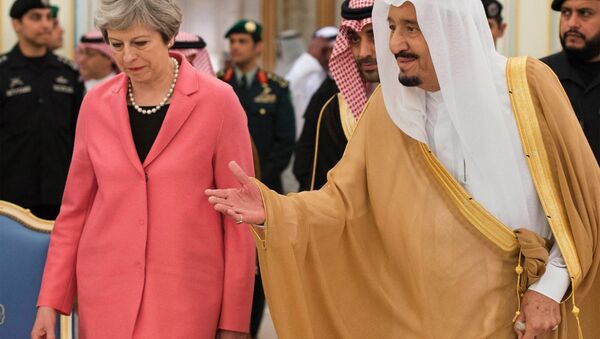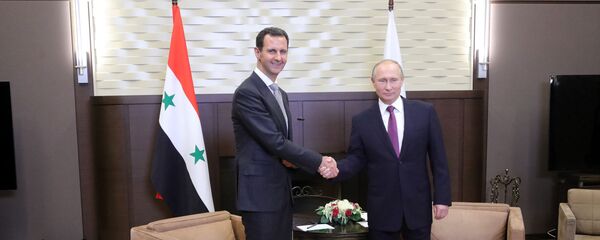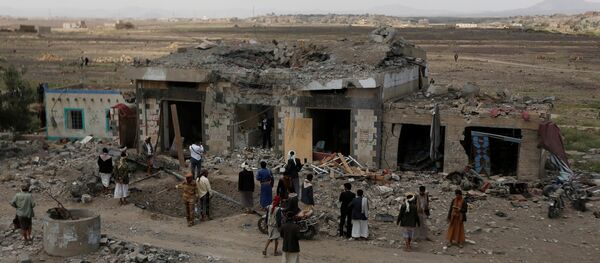May is set to hold talks with King Salman and Crown Prince Mohammed bin Salman, touching on the ongoing Saudi-led war in Yemen, as well as the diplomatic crisis between Riyadh and Doha. From Riyadh, she is expected to travel to Jordan and meet with King Abdullah II and Prime Minister Hani Mulki. Political observers can't help but to connect the British prime minister's trip with attempts to secure new business ties and diplomatic opportunities as London prepares to part ways with Brussels.
"Obviously, commercial and economic relations are going to be foremost on our mind, given Brexit, and the fact that Britain has to reposition itself," Dorsey said. "At the same time, there are a number of geopolitical issues, including the Gulf crisis between Saudi Arabia and the UAE on the one hand, and Qatar on the other. And of course there's also the rivalry and the problems with Iran," he added.
Sputnik: How much support is Theresa May likely to receive in Saudi Arabia and Jordan with this visit?
James Dorsey: I have no doubt that both the Saudis and the Jordanians want to maintain good relations and close relations with Britain, whether it is within the EU or not, and of course economic relations. For Saudi Arabia, that means primarily the arms sales on the one hand, and support in foreign investments, given the crown prince's reform plans, on the other.
For the Jordanians, who are in a far weaker economic position, and also exposed, bordering on Iraq, Palestine, as well as Syria, they're going to want more economic aid, [and] much more support, in terms of for example the Syrian refugees.

James Dorsey: I think that the ability to be able to sell arms is going to be a priority for Teresa May. Having said that, given the mounting criticism, and the possibility that at some point, parliaments, including the British parliament may want to restrict arms sales, both Britain and Saudi Arabia have an interest in trying to change the perception of that war.
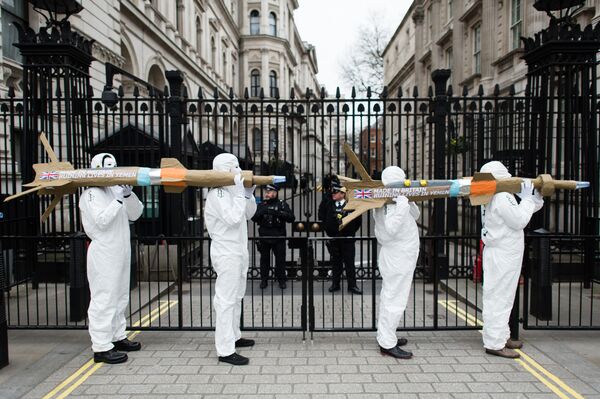
Sputnik: What other areas for potential cooperation do you see, and what deals and agreements can we expect from the visit?
James Dorsey: I'm not going to speculate on what deals may or may not be signed, but what I do think is, certainly with regard to Saudi Arabia, it's a country in which you have an ambitious crown prince who wants to introduce economic reforms, and to some degree also social reforms, and for that he needs international support. He needs foreign investment, which is complicated at the moment because of domestic developments – the recent purge of princes, senior officials, and prominent businessmen with no apparent due process. That's going to scare off foreign investors; so the Saudis have an interest in trying to convince [others] that Saudi Arabia is a safe place to put one's money.
That's basically true for Jordan too, the difference being that Jordan does not have the kind of financial muscle that Saudi Arabia has; therefore, the terms of agreements would be different. Jordan will be looking for much more of a mix of economic and commercial deals, but also of aid.
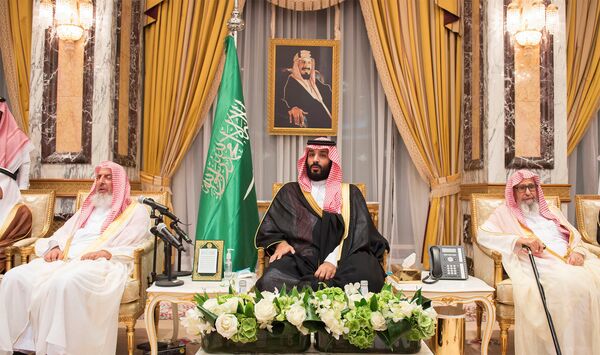
Sputnik: What sort of influence can Prime Minister May have in resolving the diplomatic crisis between Saudi Arabia and Qatar?
James Dorsey: …I don't think that there's much that Theresa May can do. Everybody and his mother has tried: the United States, Russia, Germany, the EU, and as long as Saudi Arabia and the UAE are not willing to sit down and negotiate without preconditions, and ultimately find what at best would be a face-saving solution rather than a real solution, I don't see how Theresa May would be the person that would bring the breakthrough.
Sputnik: We've seen the Saudi crown prince visiting Moscow to try to develop new relationships with Russia. Obviously there's the continued relationship with the United States. Now there's this visit from the United Kingdom. What does the future hold in terms of Saudi Arabia's relationships globally? Will it continue to have a strong relationship with the USA, or is it now looking to branch out globally to the Far East and Russia?
James Dorsey: I don't know that the two are contradictory. In other words, Saudi Arabia is certainly branching out, and strengthening its relations with Russia, with China, with other Asian nations. Having said that, if you look very carefully at what the crown prince has said, almost from the day that he came to office some three years ago now, he's been very clear that the fundamental relationship with the US is central to what he's doing.
Things could get a little bit more complicated, if as Vice President Pence has said in the last 24 hours, the United States were to move its embassy from Tel Aviv to Jerusalem in Israel.
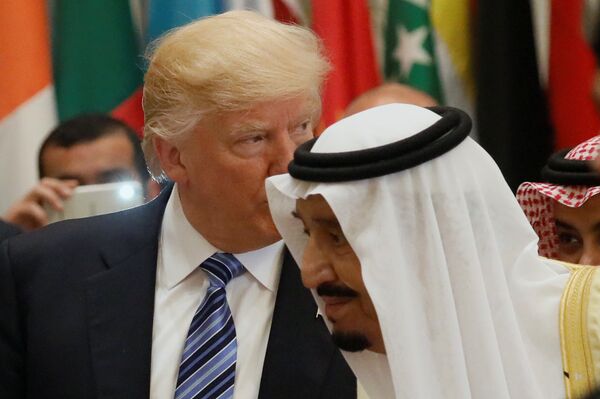
Sputnik: Do you think Britain will seek greater influence in the Middle East moving forward once Brexit comes to pass?
James Dorsey: Greater influence, I'm not sure. Close relationships? Absolutely. One thing that Britain does retain once it leaves the European Union is its veto right in the UN Security Council. So in that sense, it does remain an important partner.
